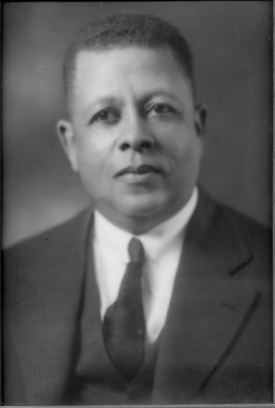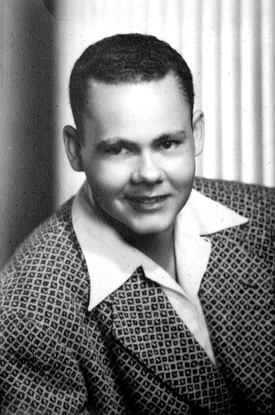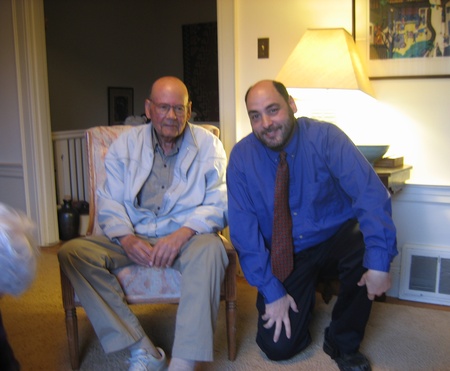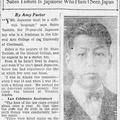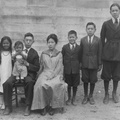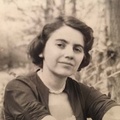The passing of Hugh Macbeth, Jr., who died in September 2019 at the age of 100, offers us an opportunity to reflect once more on the story of the remarkable Macbeth family and especially Hugh Macbeth, Sr and Jr, the father-son team of African American lawyers who provided outstanding support to Japanese Americans in the World War II era. One of the most gratifying and inspiring experiences of my life was uncovering their story and bringing it to public attention. In the process, I was privileged to get to know Hugh Macbeth Jr. and learn about his life.
I first met Hugh Macbeth Jr. early in 2005. Shortly before, I had been reading through the microfilm papers of Socialist leader Norman Thomas, the only national political figure in the United States to oppose Executive Order 9066 during the first half of 1942. In the course of my research, I had come across Thomas’s extended correspondence with Hugh E. Macbeth, an African American attorney in Los Angeles and chair of the California Race Relations Commission. I discovered that Macbeth had been the chief voice in furnishing the Socialist Party leader with detailed information about the conditions facing West Coast Japanese Americans, and alerting him to the injustice being done. I determined to find out who this Hugh Macbeth was, and began collecting information on him.
I soon discovered that during Spring 1942 Macbeth had appealed to West Coast Commanding General John De Witt not to institute mass exclusion, visited Japanese American friends confined at Santa Anita, and joined in legal cases challenging Executive Order 9066 and racial discrimination against Nisei. He helped argue the habeas corpus petitions on behalf of Ernest Kinzo and Toki Wakayama, who protested their confinement in camp. When the Hirabayashi and Korematsu cases were heard before the U.S. Supreme Court, Macbeth signed the JACL’s brief on behalf of the defendants. He also helped draft the JACL’s amicus brief in Regan v. King, a 1943 U.S. Appeals Court case in which nativist groups challenged Nisei voting and citizenship rights on racial grounds. In 1945, Hugh Macbeth helped argue the case of People v. Oyama, a constitutional challenge to California’s notorious Alien Land Act that eventuated in the landmark 1948 U.S. Supreme Court decision Oyama v. California. (Discover Nikkei readers can find more on Macbeth’s heroic efforts here.)
Around that time, I interviewed the veteran attorney and JACL activist Frank Chuman. I asked Chuman whether he had known Macbeth. He responded with a smile that he had indeed met Macbeth, and added that Macbeth had been a lawyer of his own generation. This comment puzzled me for some days—I knew that Chuman had been in his mid-20s during World War II. Finally it occurred to me that there might be a junior Macbeth.
I checked the internet and discovered that there was not only an attorney named Hugh Macbeth, Jr., but that he had served as a Commissioner [judge] of the Los Angeles Superior Court. I meanwhile discovered that there were a “Mr. and Mrs. Hugh Macbeth, Jr.” who had been donors to International House in Berkeley. Inspired by this tip, I checked the White Pages for the Bay area and found a listing for Hugh Macbeth in the Richmond district of San Francisco. I thereupon called and reached Hugh. He confirmed his identity and agreed to let me interview him.
Thus it was that I arrived at Hugh Macbeth, Jr.’s house during my next trip to San Francisco. Hugh greeted me warmly at the door and brought me inside, where I met his wife Maxine (while Hugh and Maxine had met at International House during the war years, they separated after, then finally reunited and married 50 years later, in 1994!). I sat down with them in their living room, where Hugh’s prized portrait photo from the late 1940s by the famed Nikkei photographer Toyo Miyatake occupied a prominent place.
I explained that I had begun research into the heroic efforts of Hugh Sr. to defend Japanese Americans, and brought out copies of documents that I had collected, notably the Norman Thomas correspondence from 1942. Like the good lawyer and judge that he was, Hugh examined the evidence closely, then sat up and turned to me. In a voice of wonder, mixed with pride, Hugh told me that he had of course known something of his father’s efforts on behalf of Japanese Americans after 1944, when he had gone into practice as his father’s partner. However, he had no idea of the depth and varied nature of his father’s support—especially in the first part of the war years, when he was away at law school.
I asked him about his own role in the Oyama case. He was modest about his own contributions, and said they were nothing out of the way.
This first encounter set a pattern for several future visits. Whenever I would visit San Francisco, I would stop by Hugh and Maxine’s house. I would have a drink, or they would make me lunch, and we would chat about life and our activities. They were always glad to talk about their families, and sometimes I met friends or grandchildren there. On one visit, when I told the Macbeths that I was looking for housing for my next trip, they offered to put me up in their guest room. While I felt that I should not further burden an elderly couple, I was touched by this sign of their friendship and hospitality.
After the social part of the visit was over, I would sit down with Hugh in the living room and brief him on my latest researches into his family. He would marvel over my discoveries—he seemed to radiate gratification and joy. I would ask him for anything he remembered of the history I was tracing. While Hugh usually claimed that he could not recall much, his responses actually provided me a good deal of useful insight into events. For example, Hugh Jr. explained that before the Oyama case was argued before the Supreme Court, he had advised JACL lawyers arguing the case (following a tip from his old law professor Dudley McGovney) to focus on the law’s discriminatory impact on American citizens of Japanese ancestry, rather than its effect on Japanese aliens. This proved to be the winning strategy in the case. In addition to the Oyama case, Hugh had supported Torao Takahashi, the Issei fisherman denied a fishing license in California on racial grounds, whose case also eventually resulted in a landmark Supreme Court case. Hugh had signed the friend-of-the-court brief of the American Civil Liberties Union supporting Takahashi in the California courts. He had forgotten about his involvement, and was further surprised (and pleased) when I reminded him of it.
Hugh was also generous in sharing a number of rare photographs and documents with me. I was amazed when he took me to his back office and showed me books from the original series of the War Relocation Authority’s reports on Japanese Americans, a set that he had saved ever since the war years—I was greatly touched later when he gave me a pair of the books as a gift. He also let me look over his family scrapbooks, and offered me copies of his official photos. When I asked whether I might reproduce his prized Toyo Miyatake portrait photo for my 2012 book After Camp, Hugh not only kindly consented, but authorized my assistant Michael Massing to take the photo out of its frame to make a high-resolution scan of it.
The last time I saw Hugh and Maxine was in 2014. Unlike my previous visits, it was a purely social call, with no research or work talk. By that time, Hugh was in his mid-90s and his health was increasingly frail. I came over in the early evening and brought in Chinese food for us all to eat, so that they would not have to host. It was still nice to spend a little time and chat with them. In the last years, my trips to San Francisco grew more sporadic and rushed. I did not make time to go see the Macbeths again, though I exchanged an occasional email with Maxine.
I will miss Hugh. Though he was already at an advanced age by the time I met him, I feel that my researches enabled me to form a special bond with him. I was honored to bring to public notice the story of his father’s heroic efforts on behalf of Japanese Americans. Hugh told me repeatedly that I had found so much that he had never even suspected about his father. Indeed, at one point he confessed to me that my discoveries had helped him change his own views. Hugh Jr. explained that he had tended to think of his late father mainly as an impractical man who did not concentrate sufficiently on earning money and providing for his wife and family. However, discovering his father’s actions, and seeing the esteem and gratitude expressed by Japanese Americans after they became public knowledge, had given Hugh a new feeling of admiration and pride in his parent. I can only hope that he recognized in turn how much I admired him, and how his friendship helped to shape my life and career.
© 2019 Greg Robinson


